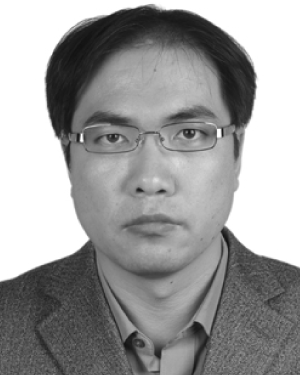A scenario where the replay attack is to a vehicle that transmits the ISAC OFDM signal x(t). The adversary emits a signal (green) which contains the received signal plus ...
Abstract:
Integrated sensing and communication (ISAC) is envisioned to be a core element of future 6G and connected vehicular wireless systems. As always wireless security and priv...Show MoreMetadata
Abstract:
Integrated sensing and communication (ISAC) is envisioned to be a core element of future 6G and connected vehicular wireless systems. As always wireless security and privacy will still be of outmost importance. Existing research on ISAC has not explored sufficiently security attacks that compromise its sensing operation. In this paper we present a new wireless range-Doppler replay attack that can compromise the functionality of ISAC systems that use orthogonal frequency division multiplexing (OFDM) for sensing and data communication. With the proposed attack the adversary detects wireless OFDM transmissions and retransmits the same wireless frame (preamble and data) but with a phase shift that varies across subcarriers and successive OFDM symbols of the frame. This results in the creation of false targets in the range-Doppler images that are created by the ISAC system. Our simulation results for a vehicular scenario show that the ISAC system cannot distinguish the false targets from the real ones even when the attacker uses low transmission power. The implication of this attack is that it may lead to inability of advanced driver assistance systems (ADAS) or connected autonomous vehicular (CAV) systems that use ISAC to operate safely.
A scenario where the replay attack is to a vehicle that transmits the ISAC OFDM signal x(t). The adversary emits a signal (green) which contains the received signal plus ...
Published in: IEEE Access ( Volume: 12)
Funding Agency:

Department of Electrical and Computer Engineering, University of Thessaly, Volos, Greece
Georgios Chrysanidis received the B.Sc. degree in electrical, electronics, and communications engineering from the Hellenic Air Force Academy and the M.Sc. degree in electrical and computer engineering from the University of Thessaly, Greece, in 2018. He is currently pursuing the Ph.D. degree with the Department of Electrical and Computer Engineering, University of Thessaly. He is currently an Officer with the Hellenic Ai...Show More
Georgios Chrysanidis received the B.Sc. degree in electrical, electronics, and communications engineering from the Hellenic Air Force Academy and the M.Sc. degree in electrical and computer engineering from the University of Thessaly, Greece, in 2018. He is currently pursuing the Ph.D. degree with the Department of Electrical and Computer Engineering, University of Thessaly. He is currently an Officer with the Hellenic Ai...View more

Institute of Information Engineering, Chinese Academy of Sciences, Beijing, China
Yanwei Liu received the B.S. degree in applied geophysics from Jianghan Petroleum University, China, in 1998, the M.S. degree in computer science from China Petroleum University, Beijing, in 2004, and the Ph.D. degree in computer science from the Institute of Computing Technology, Chinese Academy of Sciences, in 2010. Currently, he is an Associate Professor with the Institute of Information Engineering, Chinese Academy of...Show More
Yanwei Liu received the B.S. degree in applied geophysics from Jianghan Petroleum University, China, in 1998, the M.S. degree in computer science from China Petroleum University, Beijing, in 2004, and the Ph.D. degree in computer science from the Institute of Computing Technology, Chinese Academy of Sciences, in 2010. Currently, he is an Associate Professor with the Institute of Information Engineering, Chinese Academy of...View more

Department of Electrical and Computer Engineering, University of Thessaly, Volos, Greece
Antonios Argyriou (Senior Member, IEEE) received the Diploma degree in electrical and computer engineering from the Democritus University of Thrace, Greece, in 2001, and the M.S. and Ph.D. degrees in electrical and computer engineering from the Georgia Institute of Technology, Atlanta, USA, in 2003 and 2005, respectively. He was a Fulbright Scholar with the Georgia Institute of Technology. From 2007 to 2010, he was a Seni...Show More
Antonios Argyriou (Senior Member, IEEE) received the Diploma degree in electrical and computer engineering from the Democritus University of Thrace, Greece, in 2001, and the M.S. and Ph.D. degrees in electrical and computer engineering from the Georgia Institute of Technology, Atlanta, USA, in 2003 and 2005, respectively. He was a Fulbright Scholar with the Georgia Institute of Technology. From 2007 to 2010, he was a Seni...View more

Department of Electrical and Computer Engineering, University of Thessaly, Volos, Greece
Georgios Chrysanidis received the B.Sc. degree in electrical, electronics, and communications engineering from the Hellenic Air Force Academy and the M.Sc. degree in electrical and computer engineering from the University of Thessaly, Greece, in 2018. He is currently pursuing the Ph.D. degree with the Department of Electrical and Computer Engineering, University of Thessaly. He is currently an Officer with the Hellenic Air Force.
Georgios Chrysanidis received the B.Sc. degree in electrical, electronics, and communications engineering from the Hellenic Air Force Academy and the M.Sc. degree in electrical and computer engineering from the University of Thessaly, Greece, in 2018. He is currently pursuing the Ph.D. degree with the Department of Electrical and Computer Engineering, University of Thessaly. He is currently an Officer with the Hellenic Air Force.View more

Institute of Information Engineering, Chinese Academy of Sciences, Beijing, China
Yanwei Liu received the B.S. degree in applied geophysics from Jianghan Petroleum University, China, in 1998, the M.S. degree in computer science from China Petroleum University, Beijing, in 2004, and the Ph.D. degree in computer science from the Institute of Computing Technology, Chinese Academy of Sciences, in 2010. Currently, he is an Associate Professor with the Institute of Information Engineering, Chinese Academy of Sciences. His research interests include omnidirectional vision, multiview/3D video/VR video processing, multimedia networking, and digital twin. He serves as a TPC member of several international conferences in the areas of computer vision, multimedia, communications, and networking.
Yanwei Liu received the B.S. degree in applied geophysics from Jianghan Petroleum University, China, in 1998, the M.S. degree in computer science from China Petroleum University, Beijing, in 2004, and the Ph.D. degree in computer science from the Institute of Computing Technology, Chinese Academy of Sciences, in 2010. Currently, he is an Associate Professor with the Institute of Information Engineering, Chinese Academy of Sciences. His research interests include omnidirectional vision, multiview/3D video/VR video processing, multimedia networking, and digital twin. He serves as a TPC member of several international conferences in the areas of computer vision, multimedia, communications, and networking.View more

Department of Electrical and Computer Engineering, University of Thessaly, Volos, Greece
Antonios Argyriou (Senior Member, IEEE) received the Diploma degree in electrical and computer engineering from the Democritus University of Thrace, Greece, in 2001, and the M.S. and Ph.D. degrees in electrical and computer engineering from the Georgia Institute of Technology, Atlanta, USA, in 2003 and 2005, respectively. He was a Fulbright Scholar with the Georgia Institute of Technology. From 2007 to 2010, he was a Senior Research Scientist with Philips Research, Eindhoven, The Netherlands, where he led the research efforts on wireless body area networks. From 2004 to 2005, he was a Senior Engineer with Soft Networks, Atlanta. Currently, he is an Associate Professor with the Department of Electrical and Computer Engineering, University of Thessaly, Greece. His research interests include wireless communications, RADAR systems, and statistical signal processing theory and applications. He serves as the TPC member for several international conferences and workshops. He has served as a Guest Editor for the Special Issue on Quality-Driven Cross-Layer Design of IEEE Transactions on Multimedia. He was a Lead Guest Editor for the Special Issue on Network Coding and Applications of Journal of Communications.
Antonios Argyriou (Senior Member, IEEE) received the Diploma degree in electrical and computer engineering from the Democritus University of Thrace, Greece, in 2001, and the M.S. and Ph.D. degrees in electrical and computer engineering from the Georgia Institute of Technology, Atlanta, USA, in 2003 and 2005, respectively. He was a Fulbright Scholar with the Georgia Institute of Technology. From 2007 to 2010, he was a Senior Research Scientist with Philips Research, Eindhoven, The Netherlands, where he led the research efforts on wireless body area networks. From 2004 to 2005, he was a Senior Engineer with Soft Networks, Atlanta. Currently, he is an Associate Professor with the Department of Electrical and Computer Engineering, University of Thessaly, Greece. His research interests include wireless communications, RADAR systems, and statistical signal processing theory and applications. He serves as the TPC member for several international conferences and workshops. He has served as a Guest Editor for the Special Issue on Quality-Driven Cross-Layer Design of IEEE Transactions on Multimedia. He was a Lead Guest Editor for the Special Issue on Network Coding and Applications of Journal of Communications.View more

